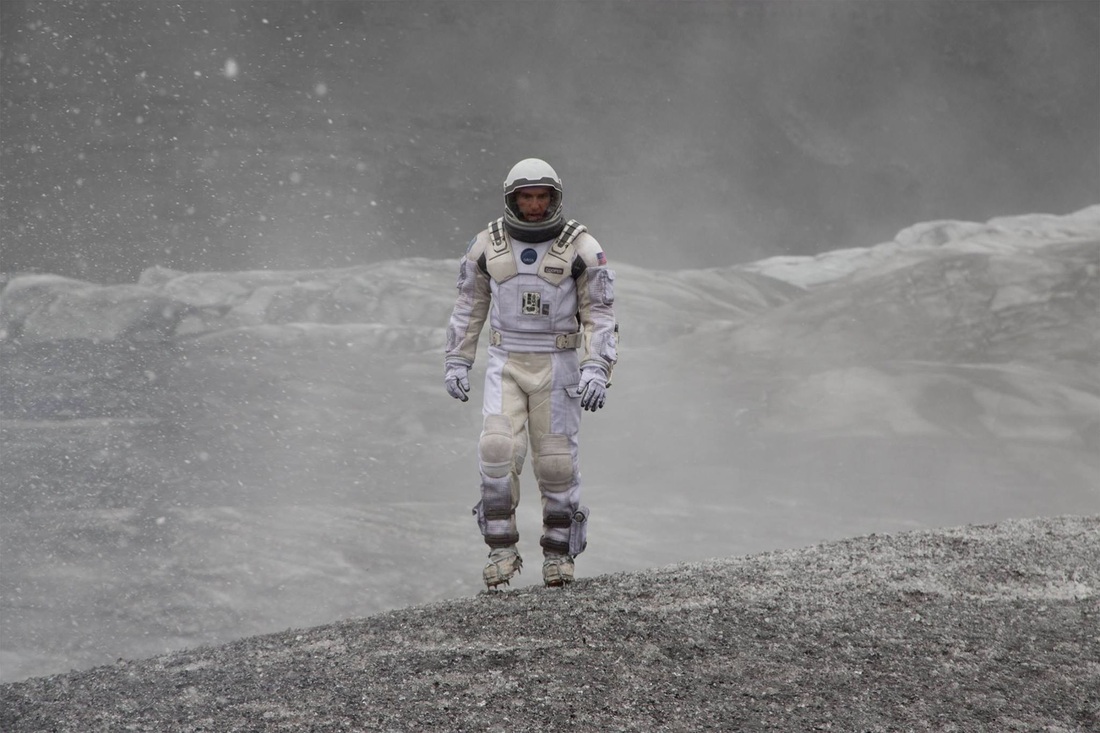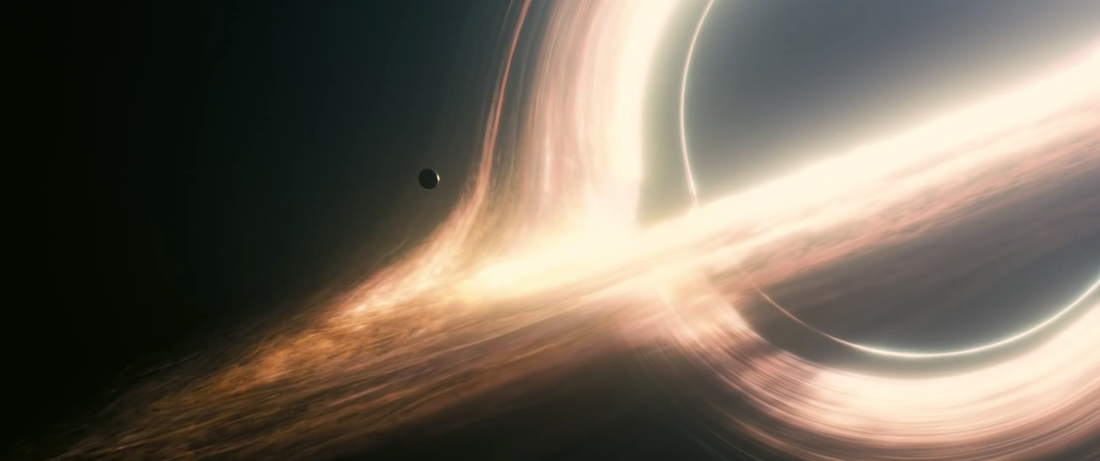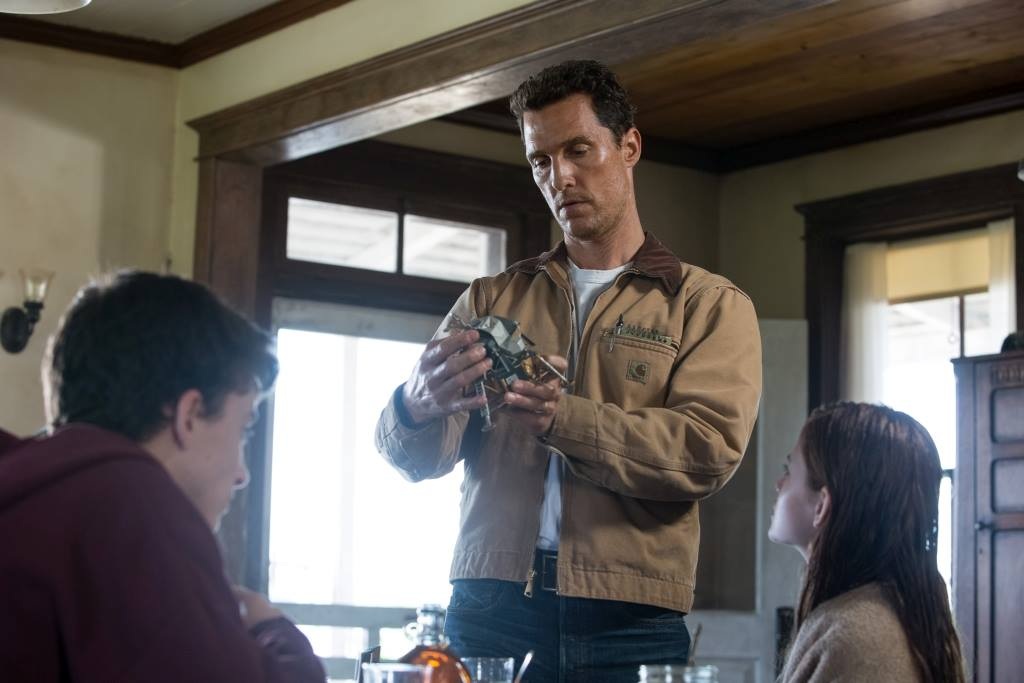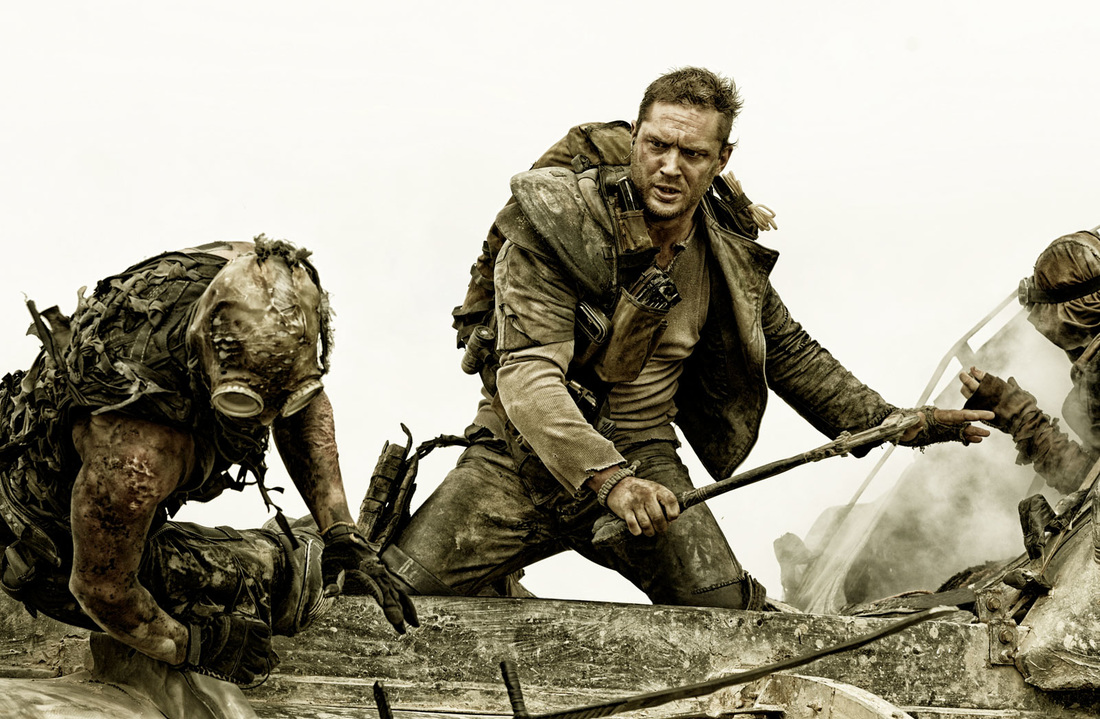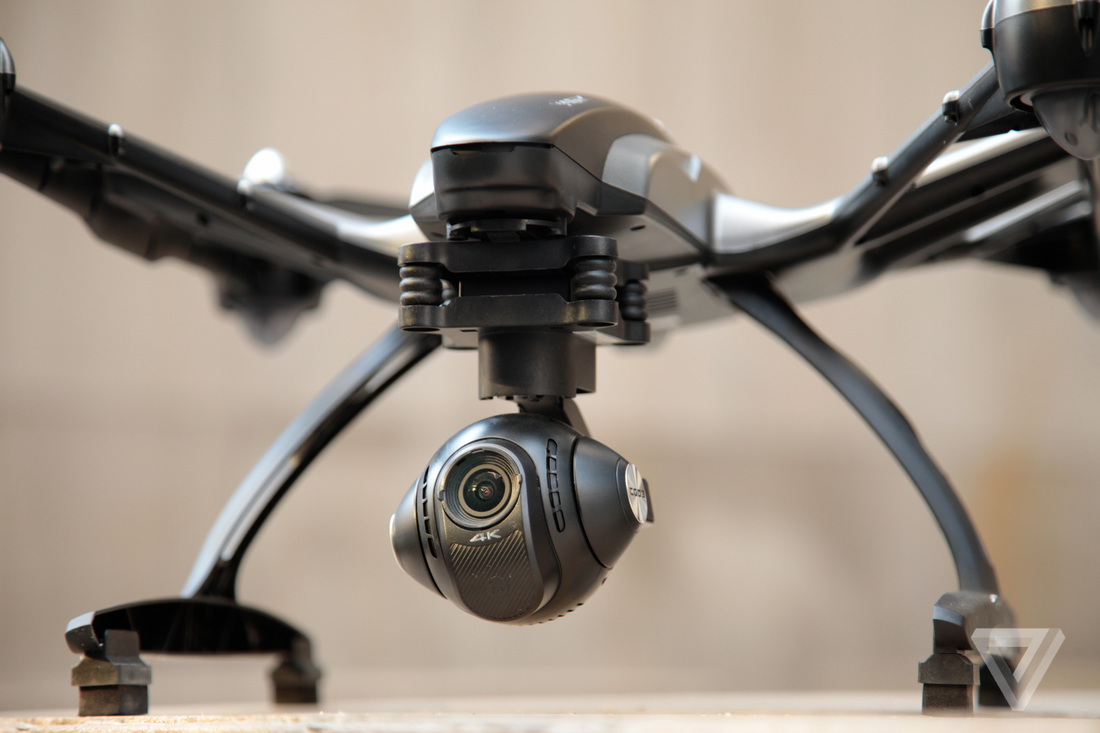Matthew McConaughey plays Cooper, a NASA pilot who has turned to farming — like everyone else at the time, an odd cut to faux-documentary footage informs us. He lives in a ramshackle house, complaining to his father (John Lithgow) about humanity’s diminished horizons and doting on his daughter Murph, played by Mackenzie Foy with a believably teenage mix of mischief and exasperation.
McConaughey eventually leaves Foy and Earth behind to scout out a new home for for the human race, but it’s their relationship that grounds the movie. As action-filled as Nolan’s films are, they can sometimes feel abstract, like symbolic sublimations of some offscreen mental trauma. So many of his characters get their motivation from some prior loss — the dead wives from Memento and Inception, the dead parents of Batman — that they then work through according to the game-like rules Nolan excels at, whether those rules are imposed by amnesia, consciousness, or a supervillain. But Foy is an actual character, not a cipher, and the relationship between her and McConaughey gives the film an emotional heft that Nolan’s other work sometimes lacks.
SOME OF THE MOST BEAUTIFUL IMAGES OF SPACE I'VE SEEN ON FILM
The biggest danger the shuttle crew faces, however, is time. Time isn't just running out — it's compressing and stretching as they travel through space. The Nolans use relativity to create some original and urgent crises as the shuttle crew figures out how to best spend their shifting time. Time is a resource, like food or water, Hathaway warns. The time differential between the crew and those they left behind also gives rise to the movie’s most melancholy scenes. In this respect it feels less like Space Odyssey and more like Homer’s Odyssey, with McConaughey getting detained and delayed as time passes and things go wrong back home.
As in 2001, things get trippy toward the end. Without revealing too much, I can say that after a series of mostly comprehensible events, it swerves into either deeply theoretical physics or sentimental spirituality. Possibly both. The shift is jarring, but also visually interesting enough that I mostly went with it.
Which is fine. The movie is most powerful when it’s at its least abstract — when it’s working through the messy decisions and sacrifices that actual interstellar travel would entail, finding dramatic potential in the laws of physics. Interstellar is sometimes confusing, melodramatic, and self-serious, but Nolan managed to make a space epic on a human scale.
Interstellar opens November 5th.
